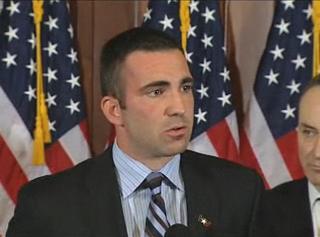Цитата Карла Марлантеса
И я думаю, что это - военные действительно добились улучшений, поэтому люди рассматривают посттравматическое стрессовое расстройство как минимум как возможную психологическую проблему. Знаешь, когда я был во Вьетнаме, это считалось симуляцией. И мы делаем успехи.
Связанные цитаты
Есть три основных вещи, которые происходят, когда кто-то страдает от этих проблем [посттравматическое стрессовое расстройство]. Во-первых, у них появляются навязчивые мысли. Вторая проблема заключается в том, что вы быстро пугаетесь. И третий ключевой момент — это избегание. рядом с тобой. Просто большое недоразумение.
Я думаю, что американский народ осознает, что после десятилетия войны пришло время заняться национальным строительством здесь, у себя дома. И что мы можем сейчас сделать, так это высвободить некоторые ресурсы, чтобы, например, вернуть американцев к работе, особенно нашим ветеранам, восстановить наши дороги, наши мосты, наши школы, убедиться, что наши ветераны получают заботу. что им нужно, когда речь идет о посттравматическом стрессовом расстройстве и черепно-мозговой травме, убедившись, что сертификаты, которые им нужны для хорошей работы в будущем, имеются.
Она [Сара Пэйлин] не совсем понимает проблему [посттравматическое стрессовое расстройство], и, знаете ли, если она собирается продолжать оставаться в этом пространстве, надеюсь, она сможет сделать некоторую домашнюю работу и дать некоторые политические рекомендации, которые актуально для решения проблемы.
Многие солдаты страдают от посттравматического стрессового расстройства, и правительство не поддержало их, когда они обратились за психологической помощью. Конечно, заключенные продолжают страдать физически и психологически. Многое нужно сделать – пытки негативно сказываются на всех, кого они касаются, в том числе и на нас, американцах, как нации.




























